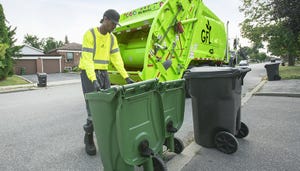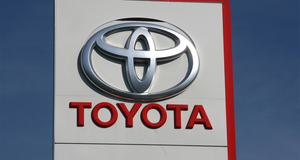Recycling's Popularity Poll
Popularity is the most important virtue for high schoolers. But as we get older, we learn other qualities are more important. That's why I find it somewhat bizarre when recycling advocates boast the latest poll showing recycling as America's most popular environmental activity.
It's great to be liked, but I wonder if our responses to pollsters are equaled by our daily habits. If we look at what people do, instead of what they supposedly do, is recycling really America's most popular environmental activity? Let's compare our garbage and recycling habits.
Most of us take out the trash every week. If we didn't, where would we put it? In our guest bedroom or our back yard? If we did, either one would quickly fill up, start to smell, and attract rodents and insects (or "vectors" as we so politely call them in the solid waste biz). Every week, we put our trash on the curbside or by our back door and expect it to be gone by the end of the day. We know that failure to collect garbage creates public health problems. Taking out the trash is an important environmental activity.
We are less likely to take out our recyclables weekly because most households generate less recyclables than garbage, and because we know that uncollected recyclables do not create any public health problems.
Yes, recycling provides numerous environmental and energy saving benefits. But recycling advocates are on shaky ground when they argue that recycling provides public health benefits. Recycling is a resource conservation issue, not a public health issue.
And what about the claim that more people recycle than vote? On election day, more people took out the trash than recycled or voted. Those who voted were more likely to vote against elected officials who can't collect their garbage than officials who can't or won't collect their recyclables.
Most Americans want to have their garbage and recycle it too. Recycling advocates need to make the case for recycling as a resource conservation technique.
They also need to come to grips with the reality that recycling services cost money. Recycling and garbage collection compete for taxpayer dollars. If recyclers aren't honest about these realities, recycling programs will be in trouble when the economy slows down and the tax base shrinks.
Based on how we act, as opposed to what we tell pollsters, Americans value their garbage service over their recycling opportunities. But at the same time, when we tell pollsters how much we love recycling, we are sending a direct message to our elected officials. We are telling them to find ways to make recycling work. Politicians would be foolish to ignore that message.
If push came to shove, taking out the garbage is more important to us than is taking out the recyclables. Recyclers need to stop relying on popularity polls and concentrate on the business of recycling.
About the Author(s)
You May Also Like




